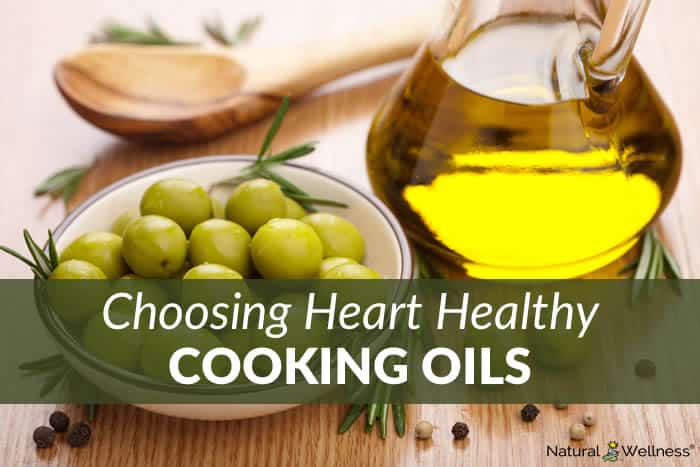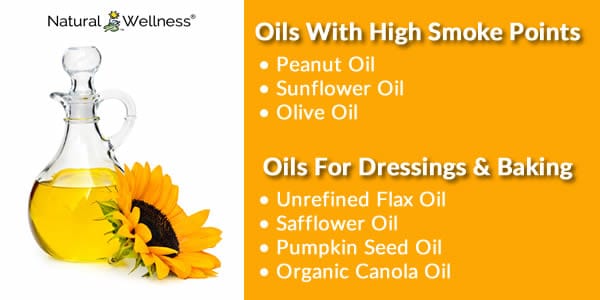

Choosing a cooking oil can be difficult. It involves many things, including having an understanding about which types of fats are healthy and which aren’t. Some oils perform well at high temperatures, while others offer distinctive flavors. Different oils go rancid fast and cannot be stored for long periods of time.
Heart Healthy Oils
Monounsaturated and polyunsaturated oils are the healthiest choices, as they are better for your heart. These types of oils can lower the risk of cardiovascular disease, lower bad cholesterol (LDL) and provide essential fatty acids that the body needs. As such, heart healthy choices for cooking oils are organic canola, sunflower, olive, peanut, corn, safflower and sesame oils. Avocados, salmon and nuts and seeds also contain monounsaturated fats.
Limit Saturated Fats
Saturated fats should be limited as much as possible, because they can lead to an increase in cardiovascular disease, may raise bad cholesterol, and lower good cholesterol (HDL). Solid fats such as butter, shortening and lard, along with tropical oils such as palm and grapeseed contain saturated fats and should be avoided when possible. Meat and cheese also contains saturated fats and should be limited.
Avoid These Oils and Fats Altogether!
Hydrogenated oils and trans fats should be avoided altogether as they raise bad cholesterol, lower good cholesterol, increase cardiovascular disease and type-2 diabetes. Margarine and shortening contain trans fats and should be avoided. Restaurants often deep fry foods in these oils, so fried foods should be avoided if possible. Commercial baked goods and “junk food” often contain hydrogenated oils and trans fats, making them very unhealthy.
Cooking and Baking with Oils

Oils that have a high smoke point (the point at which they burn) should be used for cooking while oils with a lower smoke point can be used for dressings and baking. Peanut oil, sunflower oil and olive oil can all be used in cooking as they have higher smoke points. Avoid deep fried foods, even if you are using healthy oils, as they can absorb the oil which increases the overall fat content of a meal. For dressings and baking, unrefined flax oil, safflower oil, pumpkin seed oil and organic canola are good choices. Canola oil (rapeseed oil) should be organic, or it probably contains high levels of pesticides and is genetically modified.
There is much to consider when choosing oils for cooking – and understanding the difference between monounsaturated, polyunsaturated, saturated and hydrogenated oils and fats is the first step in incorporating healthy oils (and foods) in our diets.
Editor’s Note: If you’re looking to support normal cardiovascular, platelet and blood vessel function, insulin function, brain function, as well as cholesterol levels already in the normal range, you might be interested to learn more about Super Omega-3 Fish Oil. It also promotes natural anti-inflammatory actions, which can help support the health of your liver.





What about olive oil ?